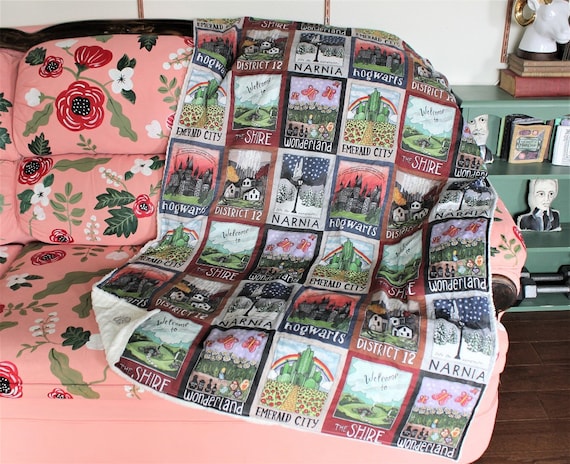We Need New Names by NoViolet Bulawayo is actually a very
very good book. I gave it 4 stars on
Goodreads, which for me means I really
liked it. I’m curious, actually, about how people interpret the Goodreads star
rating. For me it works as follows:
5 stars: THIS BOOK IS SO AMAZING I HAVE LOST THE ABILITY TO
EVEN.
4 stars: This book is an excellent book
3 stars: This book is a good book. I liked it.
2 stars: I am indifferent towards this book. It was okay.
1 star: Do not like.
Anyway, the point is, I gave We Need New
Names 4 of those pretty red stars. So, that says a lot.
Paradise is all tin and stretches out in the sun like a wet sheepskin nailed on
the ground to dry; the shacks are the muddy color of dirty puddles after the
rains.
It’s a story about Darling and 5 of her friends growing up
in an African country I assume to be Zimbabwe although this is never
explicitly stated. The six children dream of escaping the hell that is their
life, a shanty town called Paradise where they
sneak into the streets of the rich and gorge themselves on guavas, so hungry
they don’t even care that the fruit will make them ill. The stories are
terrible. Darling’s friend Chipo (aged ten) is pregnant with a baby we are led
to believe is her grandfather’s; Darling’s father is dying of AIDS – the
children call it ‘the sickness.’ It feels sometimes like every turn of the page
brings with it another terror, another heartbreak, another image of a nation on
its knees. It pulls no punches, but, and here is the sheer genius of this book,
even the most horrifying scenes are told through the eyes of a child, with
defiance and a certain matter-of-factness that comes of knowing little else,
with mischievousness and humour. You’re reading and there are paragraphs that
rip out your heart and then you’re smiling, or
you’re rolling your eyes and it never becomes the kind of depressing that makes
you want to stop reading. There is no sensationalism here: Darling is too
immersed in her life to describe it in any other way than ‘this is how it is,
so there’s no judgement, no opinion, no cry for sympathy and it makes a
difficult subject somewhat easier to read about at the same time as being
weirdly haunting. It also makes you fall head over heels in love with these
kids.
Darling’s life in Paradise
is hell. She finally makes it out, goes to live with her Aunt in ‘destroyedmichygen USA’ and
finds that the land
of Barack Obama and
plentiful food is an entirely different kind of hard. It’s hard to adjust and
hard to fit in, and hard to go from that to this, and despite it all, Darling
misses home. She wants to go home but she doesn’t know where home is anymore,
and suddenly America
doesn’t feel so much like the land of the free she;s spent a lifetime dreaming
it would be. It’s a different world and Darling doesn’t know how to fit in, and
she doesn’t know how to understand it. Darling makes new friends, and together
they work their way alphabetically through porn videos on the internet and
steal someone’s mother’s car to go driving and it’s so different from
the shenanigans of paradise and yet at the same time so similar, and there
throughout it all is Darling’s commentary. Watching her assess this Brave New
World is like a sucker-punch sometimes, it’s that good and that powerful:
We are cruising like that and I’m being forced to
listen to this stupid Rihanna song that everybody at school used to play like
it was an anthem or something. Well, maybe the song isn’t stupid, it’s only
that I just got generally sick of that whole Rihanna business, the way she was
on the news and everything, I know her crazy boyfriend beat her up but I don’t
think she had to be all over, like her face was a humanitarian crisis, like it
was the fucking Sudan.
There’s another scene with a teenage girl on a diet, putting
5 raisins on a plate for lunch. Darling’s response takes the air from your
lungs. You have a fridge bloated with food so no matter
how much you starve yourself, you’ll never know real, true hunger she
says. Well fuck. Ain’t that just the truth. & we waste food and it’s almost
a cliché isn’t it. There are children
starving in Africa people say when you can’t finish your sandwich
and we don’t even think about it. Ten chapters ago Darling was so hungry she
ate guavas til she was too constipated too eat any more and now there’s a rich
American girl with a fridge full of food, starving herself. It’s intense and
it’s incredibly real, the pictures painted for you when you read this book are
absolutely crystal clear.
You feel for Darling the whole way through but more so
somehow at the end, when she is sort of untethered, she has no ‘place’ – she is
absolutely not and will likely never be an American, but she’s so far removed
from who she thought she was and who she used to be too. She’s not an American
but she’s too far away, now, to be able to really feel the suffering of the
country she left behind. Near the start of the book one of her friends tells
her that you always have to be able to go back to where you came from. I think
Darling spent the second half of this book thinking that she could, and then
she talks to Chipo, a mother herself now to a daughter she called Darling.
Chipo sees it differently: You left it, Darling, my
dear, you left the house burning and you have the guts to tell me, in that
stupid accent that you were not even born with, that doesn’t even suit you,
that this is your country?
This, dear friends, has been a recommendation.







